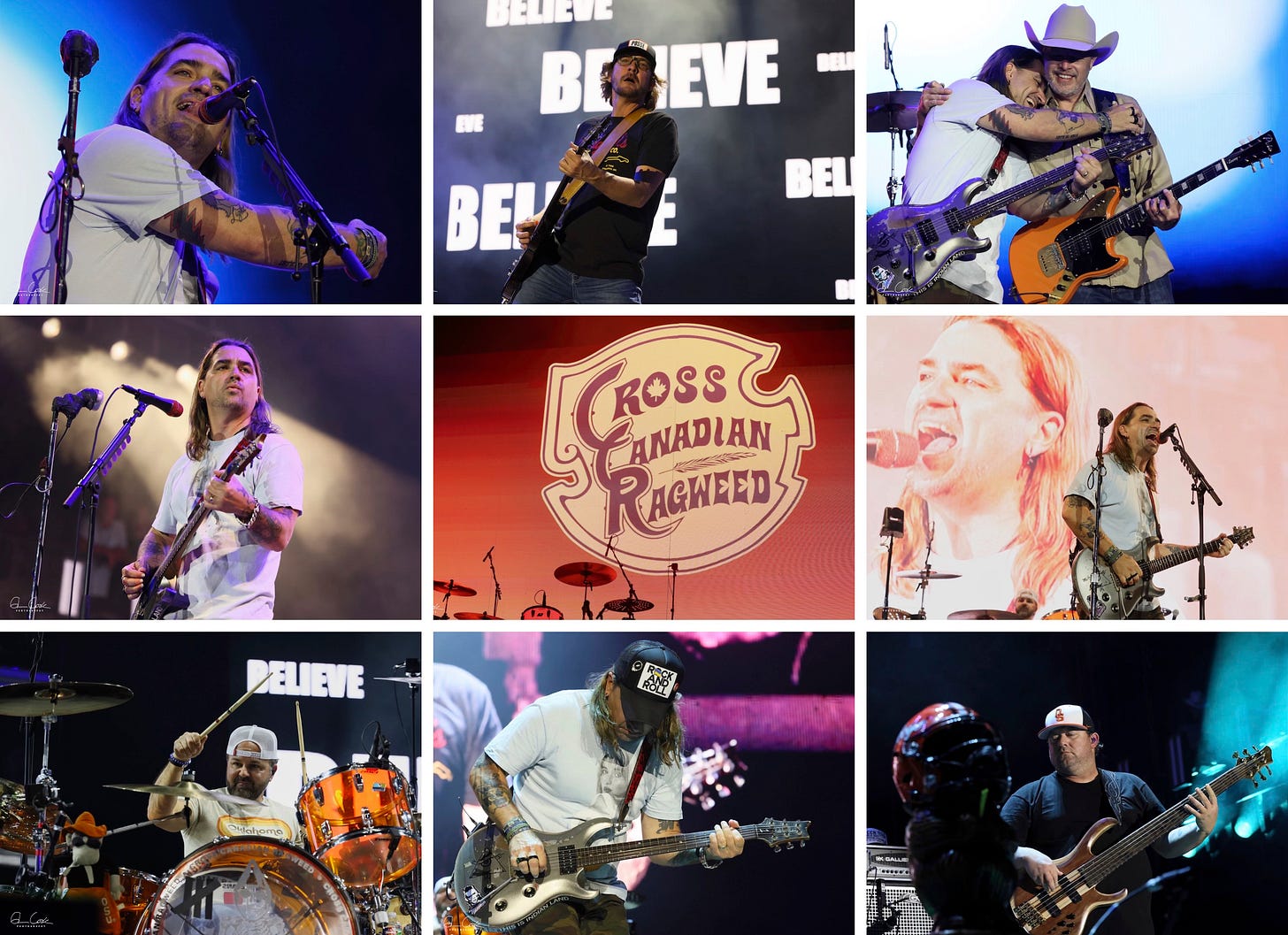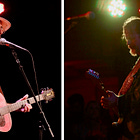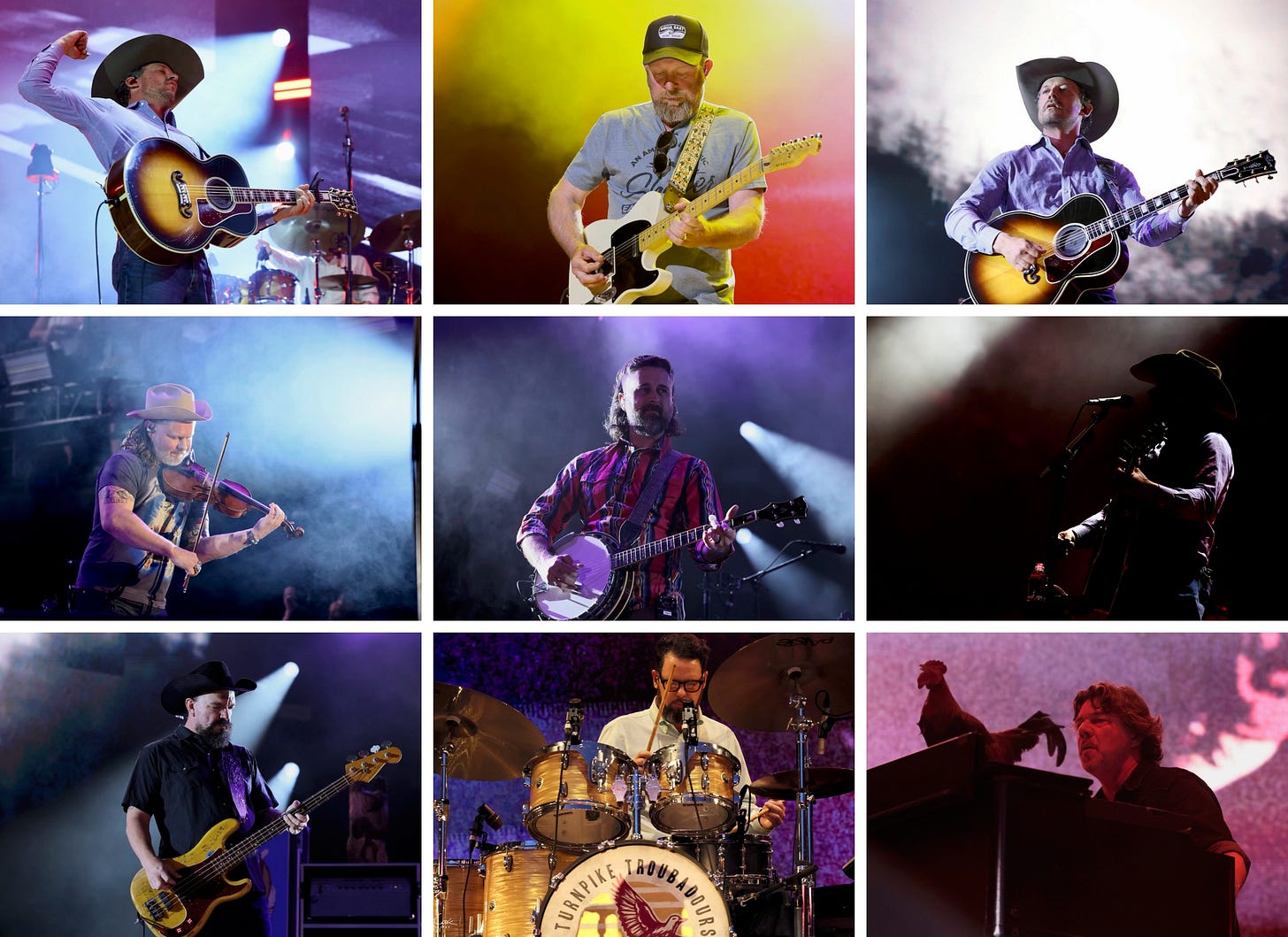Conversations: Josh Crutchmer
'Red Dirt' writer discusses Boys From Oklahoma, Cross Canadian Ragweed reunion
Last Friday, Josh Crutchmer was having one of those “mind in a blender days.”
He was finishing a writing deadline for Never Say Never, a new book about this month’s “Boys From Oklahoma” reunion of Cross Canadian Ragweed, a band he has followed for more than two decades. He also was watching the reaction to his Rolling Stone profile of Vandoliers lead singer Jenny Rose, who came out publicly in the article that day as transgender, while keeping tabs on his “actual job” as the planning editor for the New York Times.
And all of this was taking place as Crutchmer also changed Internet service providers, a switch with glitches that pushed our Zoom interview back 30 minutes.
“It’s been a crazy couple of weeks,” he said once we connected. “Fun, great, but crazy.”
Crutchmer, an Oklahoma native who has written two books that trace the history of the Red Dirt music scene, describes the April 10-13 reunion shows at T. Boone Pickens Stadium in Stillwater as “magical” and “surreal.”
Over four nights, the reunited Ragweed, Turnpike Troubadours and three other bands (Jason Boland and The Stragglers, Stoney LaRue, and The Great Divide) played to 183,000 fans. The shows — dubbed “Red Dirt Woodstock” by Scotte Lester of The Great Divide on the final night — were the largest in the state’s history and the first in the OSU stadium.
“It’s probably because Ragweed is a bar band I’ve followed my entire adult life, but seeing them get this Springsteen level of response from almost 50,000 people at each show was probably the coolest thing I’ve ever experienced in music,” Crutchmer says. “And that was after thinking about it and reporting on it for six months. Seeing it actually happen was a rush of emotion and adrenaline. It was just pure joy.”
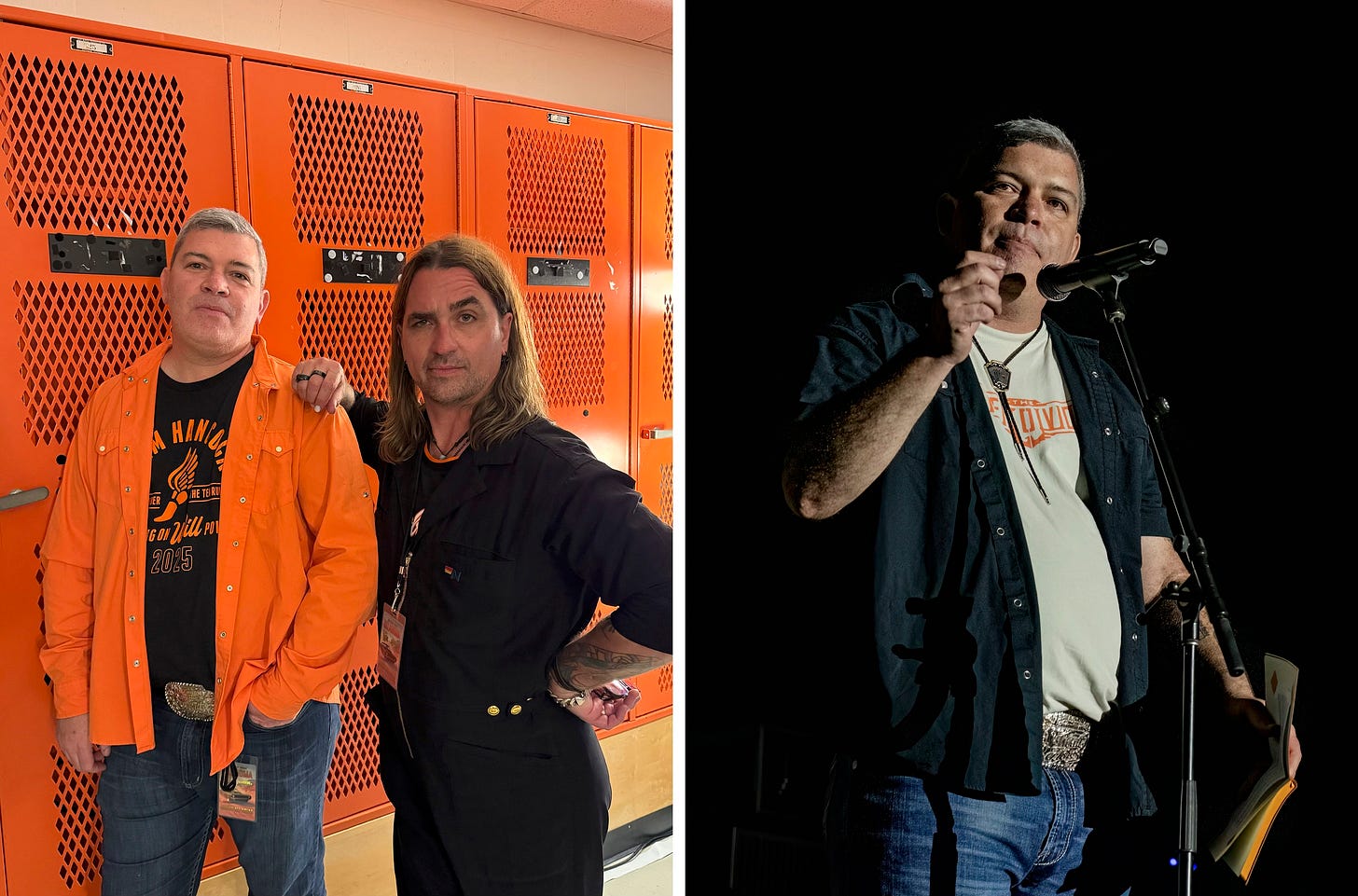
Crutchmer started work on Red Dirt: Roots Music Born in Oklahoma, Raised in Texas, at Home Anywhere in 2020. His chapter on Evan Felker, Turnpike’s lead singer, discussing his newfound sobriety and hopes to reunite the band, led to the side gig with Rolling Stone when it was excerpted in the magazine.
Working on the sequel, 2024’s Red Dirt: Unplugged, Crutchmer learned that Ragweed was planning a reunion show — something that lead singer Cody Canada had told him “never would happen.” After Crutchmer published Canada’s remarks in a Rolling Stone article, the singer said he realized he’d made a mistake.
“One of the first things he said to me after the article appeared was, ‘Well, you should never say never,’ and I told him that was going to be the title of the book I write about this,” Crutchmer says. “And here we are.”
Here are excerpts from our conversation, edited for brevity and clarity. A second part will be published tomorrow.
Watching the final Boys From Oklahoma show reminded me of the “communal catharsis” I felt when I saw The Replacements during their reunion tour at Forest Hills Stadium in 2014. Similar circumstances: A band on the edge of mainstream success, one that played mostly clubs and theaters for more than a decade, breaks up and comes back years later for a victory lap in front of thousands of adoring fans.
With the exception of Turnpike, none of these bands have played anything at that scale. Twenty-five years ago, Ragweed got to play the Houston Livestock Show & Rodeo. That was pretty big. I think they played a couple of times at Lone Star Park in Grand Prairie and that's certainly comparable, but the actual feel of a stadium show is not something you can recreate.
The Replacements concert remains the greatest show I’ve ever seen because, unlike many oldies acts that reunite, Paul Westerberg and Tommy Stinson were firing on all cylinders. It was the best version of the band I had hoped would make it but didn’t. Is that how you felt about this show?
The production, beyond just how it sounded, had to be taken into consideration. I thought they just nailed it all. Everything they wanted to do they did. It was magical.
So what was it like for you when they came on stage?
Overwhelming. It was one of the coolest things I've ever seen.
Tell me about this journey to Never Say Never. This is your third book on the Red Dirt music scene in five years.
The first book (Red Dirt) really got into the history of this music and tried to trace it back to its roots with Woody Guthrie. It covered all the characters along the way who built it into a sustainable scene and ended with the chapter about Turnpike.
Last year, I thought Red Dirt was kind of unrecognizable from what I had written about because the scene had blown up so much. Folks like Turnpike and Wyatt Flores and Kaitlin Butts had taken this regional music scene to the world in ways that it never had been sustained before Ragweed did it. Until then, Ragweed felt always like a bit of an anomaly, but now all the eyes in the world were on Red Dirt. So last year, I decided to write a sequel, if you can call it that, called Red Dirt Unplugged that looked at all has happened in the scene and the new faces who are making a name for themselves.
While doing that, I learned that Ragweed will be reuniting at the Boys from Oklahoma shows. I decided to write and capture the band’s comeback, not just from their perspective but from all of the people who made it happen.
The last four chapters are the four shows. I thought there was no reason to wait six months to a year to put that out, so I’m writing it, giving it a once over during production and letting folks have it. It's one of the most fun things I've ever done, and also completely unconventional for a book, and I like doing unconventional things. That's how we ended up here.
What was it about Ragweed that that hooked you?
I grew up in Oklahoma, and I grew up a fan of country music. By the time I got to college at Oklahoma State in Stillwater, I was more into rock and roll than country, but I still liked the feeling you get from a real good country song. Ragweed has rock instruments, a rock sound, long hair and everything else you want out of a rock band, but their lyrics are these intensely personal experiences that reminded me of my favorite country songs. They always managed to be the coolest band in the room, the coolest band on any bill. But at the same time, they were just singing these songs that could rip your heart out.
I was thinking about that during the show. I just can’t believe that one person wrote all these songs — “Constantly,” “Number,” “Dimebag.” I just rattled off the names of a country love song, a rebel song, and a tribute to Pantera, and that’s just three of them. That’s the kind of range they have.
I’m a big fan and admirer of James McMurtry for many of the same reasons. I see a lot of his influence in Ragweed and in many of the Red Dirt bands.
Absolutely. They’ve listened to him for 25 years, and McMurtry songs, the ones especially like Chocktaw Bingo that touch on Oklahoma, always get played in Red Dirt settings. They get played between sets when one band’s leaving and one band is coming on because the sound man loves McMurtry.
His influence on Red Dirt, along with artists like Robert Earl Keen and Todd Snyder, has been really important to the scene pretty much since the beginning. They kind of let that part of it slide with Boys From Oklahoma, because it was focused on Oklahoma, but you can definitely see the through line there.
I’m about 15 years older than you, and I grew up in Texas, so my exposure to this type of music came from groups that you might consider Red Dirt adjacent — Keen, Reckless Kelly, Bruce and Charlie Robison, Jack Ingram, Wade Bowen, the Old 97s, Slobberbone. Now to some degree, they’re all under the “Red Dirt” label.
Texas started accepting Red Dirt as their own (music genre) and it became a term for radio stations and promoters to use, so they’ve kind of become one over the years. One of the first times I interviewed Jason Boland was in 2000 at the Yellow House in Stillwater where he lived, and he talked about the likelihood that he would move to Texas despite being a flag-waving Oklahoman.
I just gave him a puzzled look and didn’t really say anything, and he said, “That’s our market. That’s where people want to hear this music. So we have to make it to Texas because we have to make a living.” That made a lot of sense and it’s been fascinating to watch it come true over the quarter of a century since. Now many of the musicians, Cody being one of them, live in the Texas Hill Country.
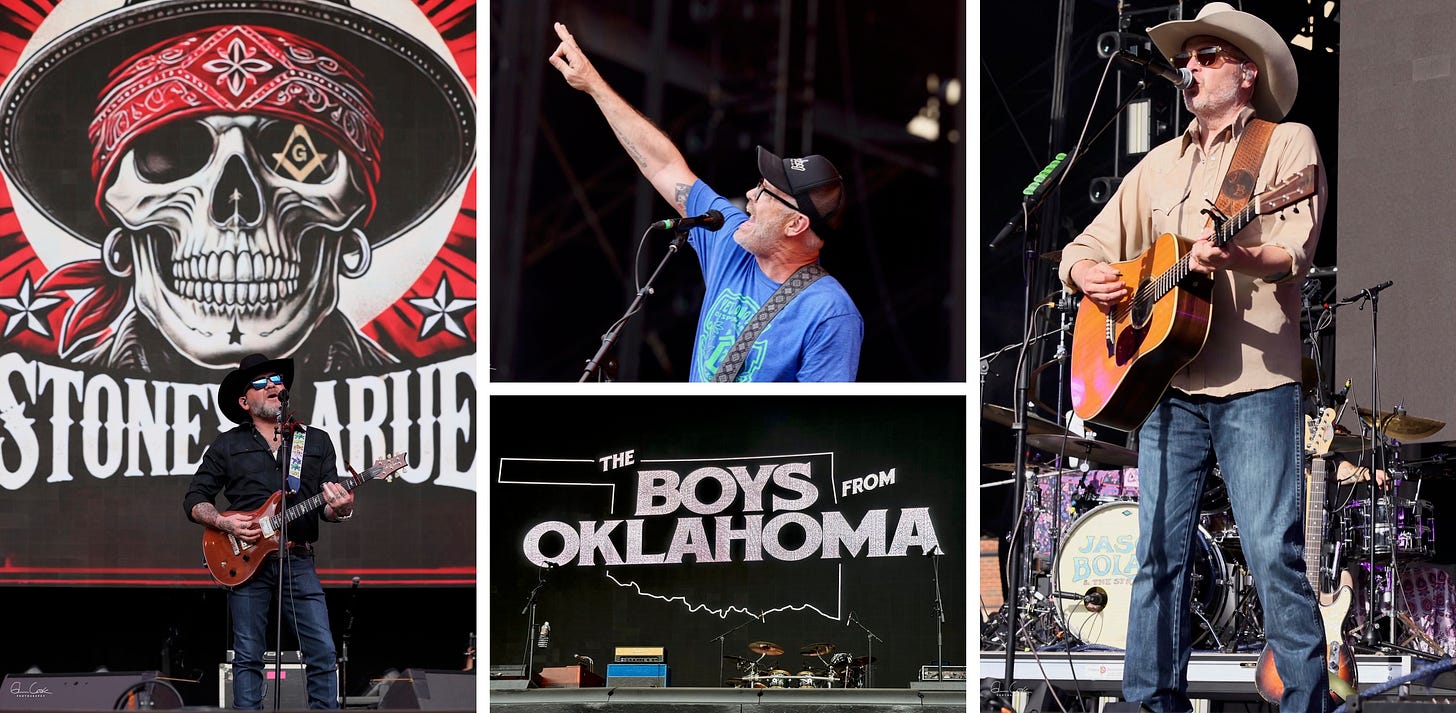
What caused Ragweed’s breakup in 2010?
The root cause was you had four guys in their late 30s with kids who had grown up around each other. They were together too long without a break, still touring 150 to 180 shows a year when they broke up. They all wanted different things for each other and for their music and were too proud to work through the differences they had.
Some members of the band wanted to pursue more mainstream success. Cody didn't. Eventually these things that could have been talked through weren’t, and everyone just shut down. The stress became too much, and it ended up becoming a breakup over who was leaving the cap off the bottle of water on the bus.
When they got back together, I think they realized all the differences were things that could have been addressed if they had been a little more mature about it. I think they would admit that now.
Was this a one off, or do you think it’s a legitimate reunion?
I think it’s a real comeback. I think they had too much fun to make it a one-off. Let’s not forget that Ragweed and Turnpike have another stadium show in August (at Waco’s Baylor University) that is sold out and in its own right should be a great time.
At the very least, I think they’ll make Boys From Oklahoma an annual thing. I don’t think you’ll see them get on a tour bus and do a hundred shows, but I think a handful of really special ones are all but guaranteed.
It was quite the contrast hearing Canada say that he had played a pool party for 45 people the week before the Boys From Oklahoma shows, where they had 1,000 times that number for four consecutive nights in the stands. What does the Boys From Oklahoma mean for the future of the Departed, his other band?
I don’t think it goes away at all. I think the Departed will become more of a band that plays shows they want to play and less of a band that’s doing them because they have to pay the bills. I think you’ll see them play a lot more at Cain’s Ballroom (in Tulsa) and Gruene Hall (in Texas) and a lot fewer 20-day runs.
Do you think Ragweed will release an album from the Boys from Oklahoma shows?
Everything was absolutely recorded and captured, but they didn’t go into it with some plan to turn it to an album. They’re probably going to spend the summer assessing that, take some time and give the shows a listen and see what makes sense. If they do something with the shows, they’re going to want it to be a banger of a live album.
What about the possibility of new music?
All of them are really busy, and Cody doesn’t have the time as a songwriter now that he did 20 years ago, but I wouldn’t be surprised to see them put out new music. Maybe not this year, but next year or the year after.
Parts of this interview were excerpted in an article for Americana Highways.
To see the 250+ photos I took at the show, go to my Flickr albums page here.
Crutchmer’s book is now available for pre-order here.






